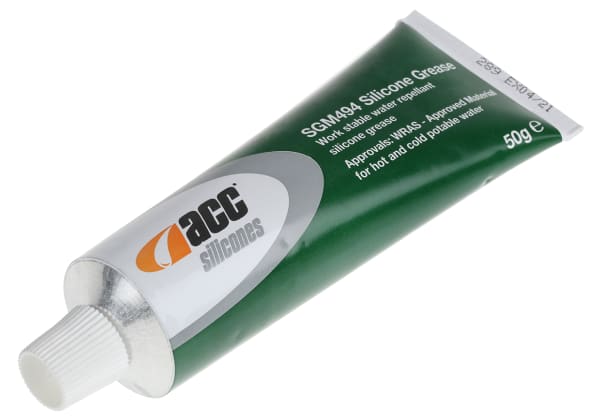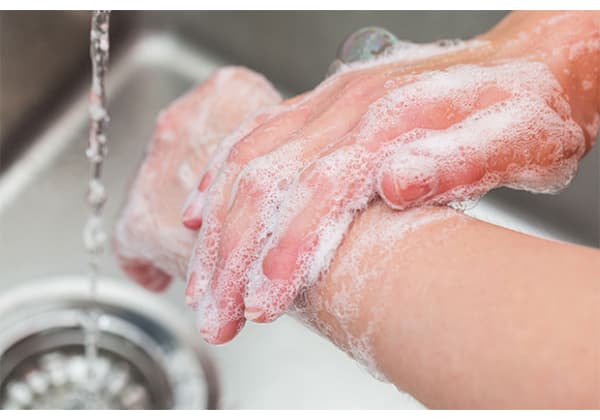- Published 18 Dec 2023
- Last Modified 13 May 2024
- 6 min
What is Isopropyl Alcohol?
Discover the multifaceted uses of isopropyl alcohol in the industrial landscape, from cleaning electronics to degreasing machinery, while ensuring safety and compliance.

Reviewed by Osman Hafeji, Technical Support Engineer (November 2023)
In the fast-paced world of business and industry, having a versatile and reliable cleaning and degreasing solution is paramount.
Isopropyl alcohol (IPA), also known as isopropanol or rubbing alcohol, is an indispensable liquid that addresses a wide range of needs in various sectors. It is a colourless, flammable chemical compound with a distinct odour. Isopropyl alcohol has the chemical formula C3H8O.
Isopropyl alcohol is commonly used as a solvent, disinfectant, and cleaning agent in various industries. It is known for its rapid evaporation and effective cleaning properties, making it a versatile solution for many applications. From cleaning electronics to degreasing machinery and even disinfecting in the medical industry, isopropyl alcohol is a valuable asset.
This comprehensive guide aims to equip you with a thorough understanding of isopropyl alcohol, its uses, safety considerations, and proper disposal methods.
Isopropyl Alcohol Uses
Isopropyl alcohol's versatility is evident in its wide range of applications. Here are some of the primary uses of isopropyl alcohol:
Isopropyl Alcohol for Cleaning
What is isopropyl alcohol used for? Primarily, it’s used as a cleaning agent. It removes dirt, grease, and contaminants from various surfaces. Isopropyl alcohol's high evaporation rate ensures that surfaces dry quickly, leaving them clean and residue-free.
In addition to its cleaning properties, isopropyl alcohol is an excellent disinfectant. It can effectively kill bacteria, viruses, and fungi on surfaces. This is crucial in settings where hygiene is of the utmost importance, such as laboratories and healthcare facilities.
Isopropyl Alcohol Cleaning Electronics
Maintaining clean and dust-free equipment in electronics is crucial as delicate components are particularly susceptible to dust and tiny particles that can affect performance. Isopropyl alcohol is therefore an excellent choice for cleaning electronic equipment such as PCBs, connectors, screens, and peripherals. Its ability to dissolve oil and grease without damage makes it a preferred choice for electronics maintenance.
Additionally, one of the key advantages of isopropyl alcohol is its rapid evaporation. After cleaning, it leaves no residue behind. This is crucial in electronics as even a tiny film of residue can interfere with signals or cause short circuits. Therefore, isopropyl alcohol for electronics is a common use.
Isopropyl Alcohol Degreaser
Isopropyl alcohol is a powerful degreasing agent, making it valuable in industries where machinery and equipment are exposed to grease and oil build-up. Whether it's in automotive, manufacturing, or food processing, isopropyl alcohol can effectively remove stubborn grease and ensure smooth machine operation.
Will Isopropyl Alcohol Remove Paint?
Isopropyl alcohol can also remove paint. While it may not be the ideal choice for large-scale paint removal projects, it can be useful for small touch-ups and corrections. It softens and dissolves paint, making it easier to remove with the appropriate tools.
Isopropyl Alcohol Disc Brakes
In the automotive industry, maintaining disc brake integrity is essential for safety. Isopropyl alcohol can be used to clean and degrease disc brakes, ensuring they function optimally and provide reliable stopping power.
Isopropyl Alcohol vs Ethanol
When discussing alcohol-based solutions for various applications, it's essential to understand the differences between isopropyl alcohol (IPA) and ethanol (ethyl alcohol). While they share some similarities, they have distinct properties that make them more suitable for specific task
Isopropyl Alcohol | Ethanol | |
|---|---|---|
| Chemical Composition | Chemical formula is C3H8O. It is derived from propene, a petroleum by-product | Chemical formula is C2H5O5. It is derived from plant-based sources, typically sugar cane |
| Purity | Available in various concentrations, typically 70% or 99% purity | Typically denatured when used in industrial applications |
| Cleaning Properties | It is a powerful cleaning agent and degreaser | It is a good cleaner but less effective at dissolving oils/greases |
| Disinfectant | Strong disinfection and sanitisation properties | Widely used as a disinfectant |
| Evaporation Rate | Rapid evaporation rate without residue | Slow evaporation rate |
| Flammability | Flammable | Flammable |
| Safety | Safe for use on most surfaces but should be tested discretely prior to use on a new material/surface | Generally safe for use on most surfaces and materials, but testing is recommended for surety |
Isopropyl alcohol and ethanol are both valuable options, each with its own strengths. Careful consideration of the specific requirements of your application will help you choose the most suitable alcohol for the task, ensuring safe and effective results.
Is Isopropyl Alcohol Rubbing Alcohol?
The term rubbing alcohol is often used interchangeably with isopropyl alcohol. Rubbing alcohol typically refers to isopropyl alcohol solutions containing approximately 70% isopropyl alcohol mixed with water. These solutions are commonly used as antiseptics, disinfectants, and for general cleaning purposes.
Is Isopropyl Alcohol Safe?
Safety is paramount when working with isopropyl alcohol. You must know the potential health and safety risks associated with its use. Proper handling, storage, and protective measures are crucial to ensure employees' safety and regulatory compliance.
Health and Safety Risks:
- Flammability: Isopropyl alcohol is flammable and ignites easily near open flames, sparks, or hot surfaces. When handling IPA, it's crucial to keep it away from potential ignition sources and follow safety protocols to prevent fires
- Inhalation Risk: Isopropyl alcohol fumes can be harmful if inhaled excessively. Prolonged exposure to these vapours may lead to dizziness, headaches, and respiratory irritation
- Ventilation: To avoid inhaling the vapours, adequate ventilation is essential when working with IPA, especially in enclosed spaces
- Skin and Eye Contact: Contact with isopropyl alcohol can cause skin dryness and irritation. It's advisable to wear protective gloves and safety goggles when handling IPA to avoid direct skin and eye contact
- Ingestion: Isopropyl alcohol is toxic when ingested. Proper storage and handling are essential to prevent ingestion
Safety Precautions:
To ensure isopropyl alcohol safety, it is important to implement the following safety precautions:
- Proper Storage: Store isopropyl alcohol in well-ventilated areas away from heat sources, open flames, and incompatible materials. Ensure containers are tightly sealed to prevent evaporation and spillage
- Personal Protective Equipment: Employees should wear appropriate personal protective equipment, including safety goggles and chemical-resistant gloves, when handling isopropyl alcohol
- Adequate Ventilation: Use isopropyl alcohol in well-ventilated areas to reduce inhalation risks. Mechanical ventilation systems or respirators may be necessary in enclosed spaces
- Handling Procedures: Follow safe handling procedures, including avoiding contact with skin, eyes, and clothing. In case of contact, wash the affected area thoroughly with water
- Fire Safety: Implement fire safety measures, such as fire extinguishers and fire blankets in areas where isopropyl alcohol is used. Do not smoke or use open flames near IPA
How to Dispose of Isopropyl Alcohol
Proper disposal of isopropyl alcohol is essential to protect the environment and adhere to regulations. Disposing of isopropyl alcohol should be done responsibly via a hazardous waste disposal site. You should never pour isopropyl alcohol down a drain as this could have serious consequences for the environment.
Summary
Isopropyl alcohol is a versatile and valuable liquid, used in many industries. Its applications range from cleaning electronics and degreasing machinery to paint removal and brake maintenance. Understanding the differences between isopropyl alcohol and ethanol, as well as its safety considerations and proper disposal methods, is crucial for utilising this chemical effectively.
By incorporating isopropyl alcohol into your business and industrial processes, you can enhance efficiency and maintain high standards of cleanliness and safety.
Related Articles
Related links
- Isopropyl Alcohol | Rubbing Alcohol
- Electronics Cleaners
- RS PRO Isopropyl Alcohol 400 ml Aerosol
- Ambersil IPA Solvent Isopropyl Alcohol 400 ml Aerosol
- Kontakt Chemie KONTAKT IPA Isopropyl Alcohol 200 ml Aerosol
- RS PRO Isopropyl Alcohol 1 L Bottle
- MG Chemicals 8241-W Wet Isopropanol Wipes, Box of 25
- RS PRO Isopropyl Alcohol 500 ml Tin


